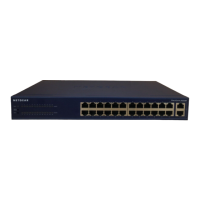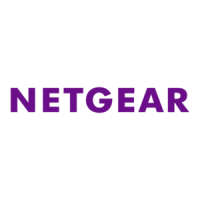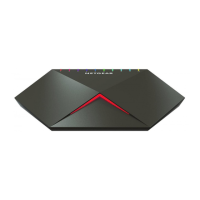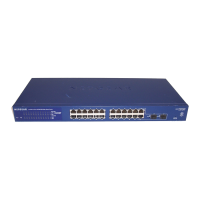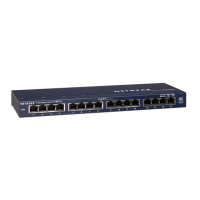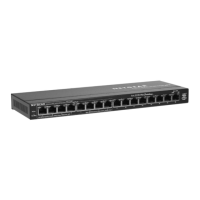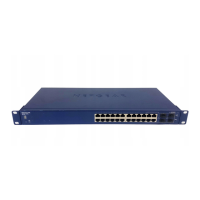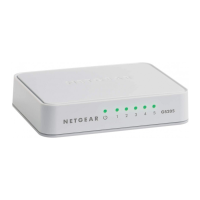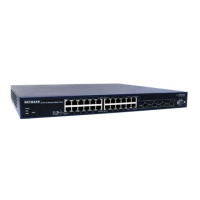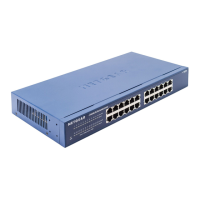Configuring Switching
139
S3300 Smart Managed Pro Switch
Link Aggregation Groups
Link aggregation groups (LAGs), which are also known as port channels, allow you to
combine multiple full-duplex Ethernet links into a single logical link. Network devices treat the
aggregation as if it were a single link, which increases fault tolerance and provides load
sharing. You assign the LAG VLAN membership after you create a LAG. The LAG by default
becomes a member of the default management VLAN (that is, VLAN 1).
A LAG interface can be either static or dynamic,
but not both. All members of a LAG must
participate in the same protocols. A static port channel interface does not require a partner
system to be able to aggregate its member ports.
Static LAGs are supported. When a port is added to a
LAG as a static member, it neither
transmits nor receives LAGPDUs. The switch supports 26 LAGs.
The LAGs menu contains the links described in the following sections.
• LAG Configuration on
page 139
• LAG Membership on p
age 142
• LACP Configuration o
n page 143
• LACP Port Configuration on p
age 143
LAG Configuration
Use the LAG Configuration screen to group one or more full-duplex Ethernet links to be
aggregated together to form a link aggregation group, which is also known as a port channel.
The switch treats the LAG as if it were a single link.
To configure LAG settings:
1. Select S
witching> LAG > Basic > LAG Configuration.
Figure 83. Basic LAG Configuration
2. Select the check box next to the LAG to configure.
You can select multiple LAGs to apply the same setting to the selected interfaces. Select
t
he check box in the heading row to apply the same settings to all interfaces.
3. Conf
igure or view the following settings:
Note: Click current members in the list to see existing member ports in that
LAG.
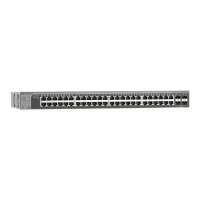
